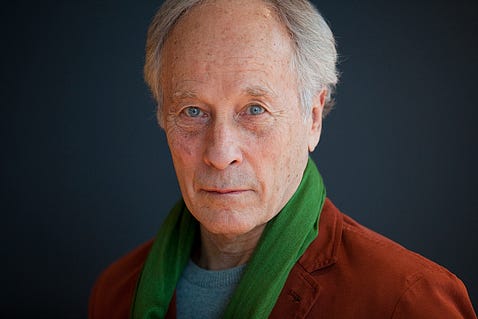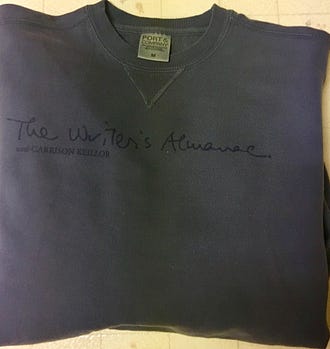|
 |
The Writer's Almanac from Friday, February 16, 2007
"My Methodist Grandmother Said" by Mary Mackey, from Breaking the Fever: Poems. © Marsh Hawk Press.
It's the birthday of historian and philosopher Henry Adams, born in Boston, Massachusetts (1838). He was the great-grandson of John Adams, the second president of the United States, and the grandson of John Quincy Adams, the sixth president of the United States. But growing up, he felt that his family's illustrious history was a burden on him. He had no interest in politics.
Adams worked as a secretary for his diplomat father, which got him out of serving in the military during the Civil War, but after that he quickly moved into freelance journalism. He once wrote a 2,700-page book called History of the United States of America During the Administrations of Jefferson and Madison, and the way he saw it, things had only gone downhill from there. In 1877, he moved to Washington, D.C., to write about the corruption scandals of the day, and he was one of the first journalists to point out that most politicians had become pawns of big business.
Adams wrote a number of historical works, and he even anonymously published a satirical novel about Washington, D.C., called Democracy (1880). But we remember him today for writing one of the first modern American memoirs, The Education of Henry Adams. It was privately printed in 1907, and few people read it. But when it was republished in 1918, after Adams's death, it won the Pulitzer Prize for literature.
At the time, memoirs were generally written by great men, to recount their great, public lives. But The Education of Henry Adams is the story of Henry Adams's growing sense of his own personality, his own individual ideas about America and about history. It was one of the first times in American literature that an American had written such a subjective book about his own experiences and his own ideas. Memoirists have been following in its path ever since.
Henry Adams said, "The proper study of mankind is woman."
It's the birthday of novelist Richard Ford, born in Jackson, Mississippi (1944). His father was a traveling salesman and his grandfather managed a hotel. Ford originally thought he would go into hotel management, like his grandfather, and he studied hotel science at Michigan State University. But he switched to studying English literature, even though he suffered from dyslexia. He said, "Being a slow reader admitted me to books at a very basic level — word by word. That doesn't seem like bad preparation to me, if writers are people who essentially live in sentences."
After graduation, he spent several years trying to figure out what to do. He spent a semester in law school. He applied for a job as a police officer and was rejected, and then applied for a job with the CIA and was accepted, but he didn't take the job. He supported himself primarily as a substitute teacher and a baseball coach. He began thinking about writing because he said, "What could be better than to have a job in which you told everybody what to do?"
Ford's first two novels, A Piece of My Heart (1976) and The Ultimate Good Luck (1981), got good reviews. But they sold a combined total of only 12,000 copies. So he quit writing fiction and got a job as a sportswriter for a magazine called Inside Sports. And he found that it was the perfect job. He'd never been happier at a job in his life. He might have stopped writing fiction forever, but the magazine went out of business. He applied for a job at Sports Illustrated, but they turned him down.
So with nothing else to do, Ford began writing the novel that would make his name, a novel about a sportswriter named Frank Bascombe. The book was called The Sportswriter (1985), and it became Ford's first best-seller. Ford has gone on to write two more books about Frank Bascombe: Independence Day (1995) and The Lay of the Land. (2006).
When asked what his advice is for aspiring writers, Ford said, "Try to talk yourself out of it. As a life, it's much too solitary, it makes you obsessive, the rewards seem to be much too inward for most people, and too much rides on luck. Other than that, it's great."
Be well, do good work, and keep in touch.®
The Writer’s Almanac sweatshirt
Heavyweight sweatshirt is the perfect wearable for any fan of our poetry podcast! Sweatshirt is made in the USA and available in size S - XL.
If you are a paid subscriber to The Writer's Almanac with Garrison Keillor, thank you! Your financial support is used to maintain these newsletters, websites, and archive. If you’re not yet a paid subscriber and would like to become one, support can be made through our garrisonkeillor.com store, by check to Prairie Home Productions, P.O. Box 2090, Minneapolis, MN 55402, or by clicking the SUBSCRIBE button. This financial support is not tax deductible.


